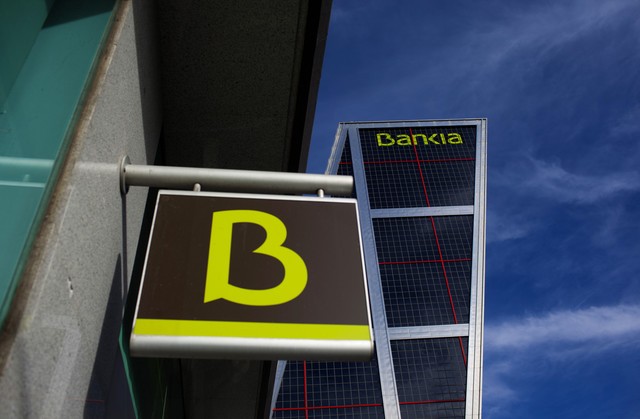Bitcoin Derivatives Sprout as Regulators Play CatchUp Bloomberg Business
Post on: 7 Сентябрь, 2015 No Comment

Kolin Burges, a Mt. Gox customer, holds a placard in front of a building housing the company operating the Mt. Gox Bitcoin exchange in Tokyo on Feb. 27, 2014. Photographer: Tomohiro Ohsumi/Bloomberg
Feb. 28 (Bloomberg) — The bankruptcy of a major Bitcoin exchange in Japan not only focused attention on the digital currency’s risks, it also rattled a still-newer market that regulators are just starting to monitor: Bitcoin derivatives.
George Samman, a former Wall Street investment adviser who in May helped start a platform for betting on Bitcoin’s price swings, saw trading on his BTC.sx website grow to more than $35 million by Jan. 21. After the shutdown at Mt. Gox, the Tokyo-based exchange for buying Bitcoins, BTC.sx suspended trading — because it had to find another exchange partner for its customers.
“It is semi-Wild West, but that’s only because it’s new,” Samman said before the Mt. Gox shutdown.
The regulation of Bitcoin, let alone derivatives of it, is an unresolved question in many parts of the world. Even as regulators and investors struggle to grasp Bitcoin’s many uses — — including investment vehicle, payment-processing system and money-laundering tool — they are now confronted with the additional complexities of an emerging derivatives market where entrepreneurs say current rules don’t apply.
Russia has said Bitcoin is illegal under current law, while China has stopped financial institutions from dealing in it, even as trading continues.
CFTC Looking
In the U.S. states are wrestling with how digital-currency businesses could be regulated, including as money transmitters. In Europe, the European Banking Authority said today that it would set up a task force to review options for regulating Bitcoin and its derivatives.
At the top U.S. derivatives regulator, the Commodity Futures Trading Commission, lawyers are considering if and how to oversee derivatives linked to Bitcoin and other digital currencies, according to two people briefed on its work. The agency has been preparing an internal memo that examines CFTC’s authority over digital currencies and how it might exercise those powers to regulate the markets, the people said.
Steve Adamske, CFTC spokesman, declined to comment.
Mt. Gox, which had revenue of 135 million yen ($1.33 million) in the year ended March, applied in Tokyo District Court today with debt exceeding its assets by 2.7 billion yen, the exchange said in a statement. The company said it had lost 750,000 Bitcoins belonging to users and 100,000 of its own.
Traders like Samman say a robust Bitcoin derivatives market may someday smooth the volatility that has plagued the digital currency. Over the last year, Bitcoin’s price rose from $20, peaked at $1,147 and dropped to as low as $534.71 on Feb. 25, according to the CoinDesk Bitcoin Price Index. Bitcoin investors who can hedge against the price falling, the traders say, would have less reason to dump the volatile currency in a panic, contributing further to stability.
Not Waiting
As U.S. regulators ponder their next move, some entrepreneurs already conducting trades are betting that dealing only in Bitcoin, not U.S. dollars, will protect them from oversight until the rules are clear. The firms, in Ireland, Britain and Singapore — and one founded by two Russians — are already serving thousands of U.S. customers.
Patrick Murck, the general counsel for the Bitcoin Foundation, an advocacy group for the currency, said the rules will vary with the services offered.
“Financial services that use the Bitcoin protocol can and often do fall into existing regulatory categories,” Murck said in an e-mail. “Some uses of the protocol may fairly be considered trading in derivatives and regulated by the CFTC, while others likely will not.”
2008 Introduction
The digital currency was introduced in 2008 by a programmer or group of programmers under the name Satoshi Nakamoto and has since gained traction with merchants around the world. Bitcoin has no central issuing authority, and uses a public ledger to verify transactions while preserving users’ anonymity.
Because it has properties normally associated with a traditional currency, entrepreneurs have sought to create uses for it that mimic those of the U.S. dollar, the euro and other currencies.
“Bitcoin protocol is a really genius way of sending wealth across the world, very quickly, very cheaply, which has appeal to many people,” said Arthur Hayes, founder of Bitmex, a Bitcoin derivatives trading platform due to start operations in June.
Hayes said by phone today from Hong Kong that he’s weighing where to base his platform, which depends on the regulatory environment. Bitmex will allow users to trade futures and options on Bitcoin against currencies from the Group of 10 nations.
CFTC Options
The CFTC could argue that Bitcoin is a commodity under U.S. law and subject to the agency’s rules against manipulation and fraud, according to Salman Banaei, Washington-based senior counsel at Norton Rose Fulbright law firm. He said the agency, which regulates derivatives tied to interest rates and commodities like oil and wheat, would have “clearer” jurisdiction over futures, swaps and options linked to Bitcoin.
“For example, a Bitcoin futures exchange in the United States, or a foreign exchange offering ‘direct access’ to its trading engine to U.S. customers would generally have to register with the CFTC,” said Banaei, who last year left the CFTC, where he helped write regulations.
Senator Tom Carper, a Delaware Democrat who has taken an interest in digital-currency issues, on Jan. 16 called on the CFTC to lift the “fog of uncertainty” over Bitcoin by clarifying its jurisdiction in the area.
Plans Suspended
Jaron Lukasiewicz, chief executive of Coinsetter LLC, a New York-based Bitcoin exchange, said that his company has suspended plans to offer derivatives due to the uncertainty around the CFTC’s intentions, plus the expense of maintaining a derivatives-broker license.
“We’ll keep pressing forward on it, and we hope that reputable companies will be given the chance to offer this essential addition to the market,” Lukasiewicz, a former investment banker with JPMorgan Chase & Co. said in an e-mail.

Among the firms offering Bitcoin derivatives is Predictious.com, which lets users bet on various events, such as the price of Bitcoin against the U.S. dollar. Other potential bets have nothing to do with Bitcoin, such as the outcome of the Academy Awards and the World Cup this year in Brazil.
Because all bets are made and settled in Bitcoin, regulations in the U.S. or otherwise aren’t relevant to Predictious, according to Flavien Charlon, a software developer who created the site in his free time. He said he hasn’t had any contact with regulators about the site, and that it has about 3,000 users, the “bulk” of them in the U.S.
“For the moment, I don’t think the regulators care what we’re doing,” Charlon said. “But I’m sure over time they’ll look into it.”
U.S. Intervention
The CFTC has shown some interest in regulating predictions venues outside the U.S.
Intrade, an Ireland-based predictions market, asked its U.S. customers to close their accounts in November 2012 after the CFTC sued its parent company, Dublin-based Trade Exchange Network Ltd.
Charlon said he doubted that the CFTC could prevent customers in the U.S. from using Predictious, since the online “wallets” used to hold Bitcoin aren’t attached to a specific country, and because many customers use Internet browsers that obscure their location.
The Bitcoin derivatives market Icbit.se took shape in 2011 when Alex Bragin and another Russian put together a website that now offers Bitcoin futures. Clients can borrow as much as five times their own capital for leveraged investments, and Bragin intends to create an options market as well.
Popular Bets
The most popular derivative on Icbit.se is a futures contract that pays out based on the dollar price of Bitcoin on the largest exchange at the time of settlement, Bragin said. About $30 million worth of the contracts — a single unit is $10 — have been sold, he said.
Bragin said there’s no need to deal with regulators now because no rules exist for Bitcoin derivatives that don’t settle in fiat, or government-issued currencies. “Dealing only in Bitcoin saves us from the hassle of dealing with the usual money-related rules and regulation,” Bragin said, echoing the position of Samman at BTC.sx
“There is no law in Bitcoin right now, and we only deal in Bitcoin,” Samman said. “We don’t deal in fiat.”
To contact the reporters on this story: Carter Dougherty in Washington at cdougherty6@bloomberg.net ; Silla Brush in Washington at sbrush@bloomberg.net
To contact the editor responsible for this story: Maura Reynolds at mreynolds34@bloomberg.net














